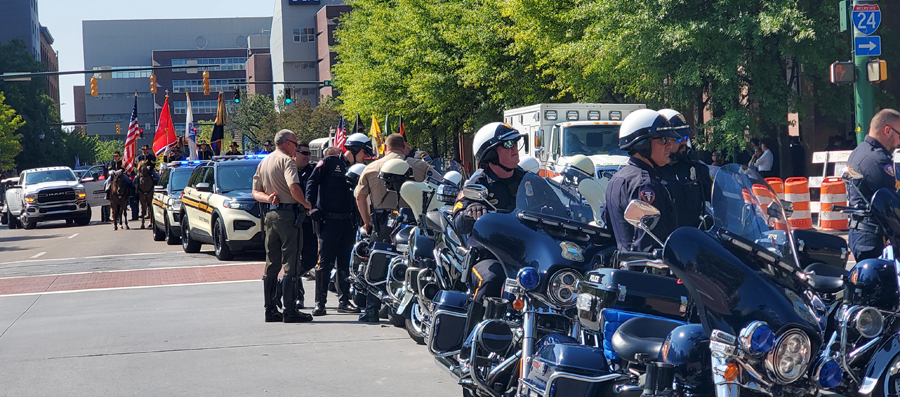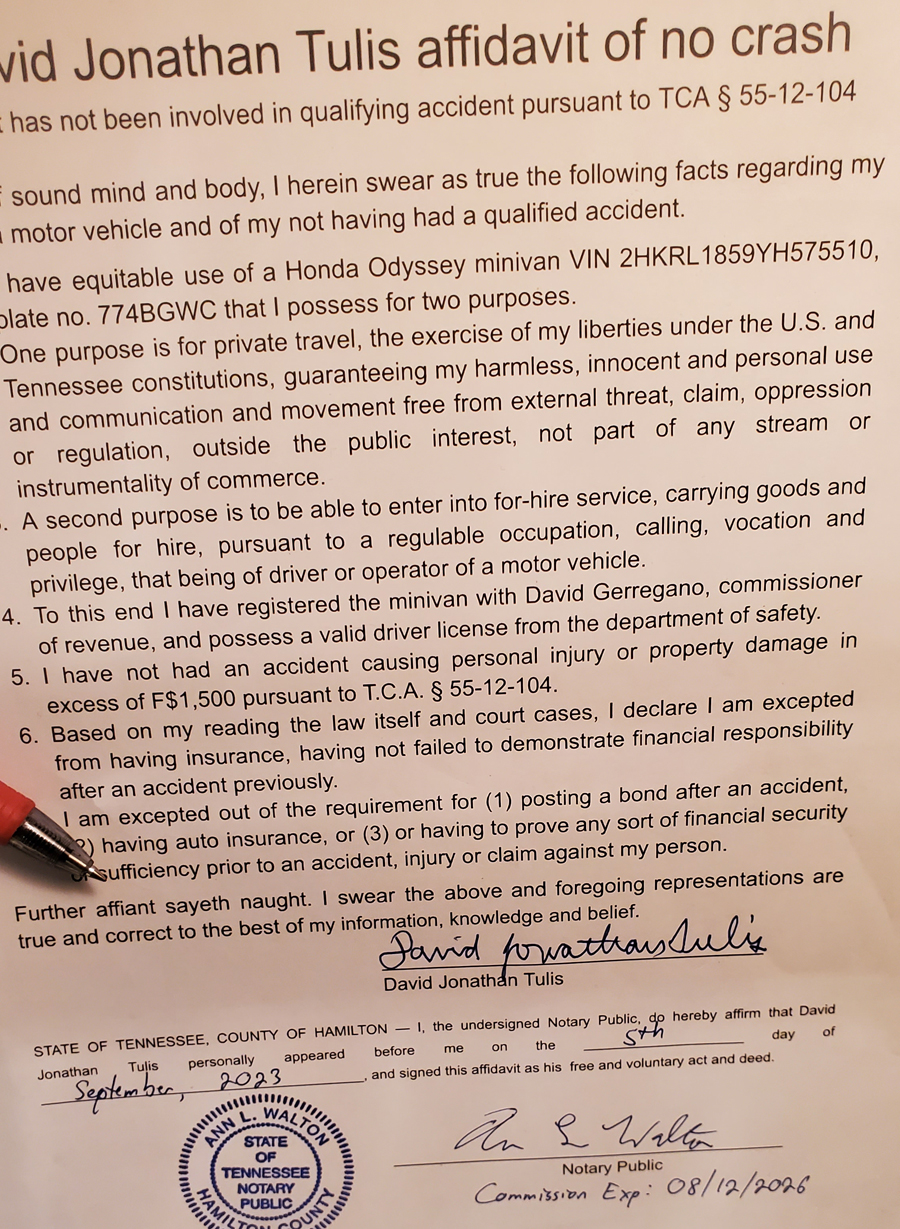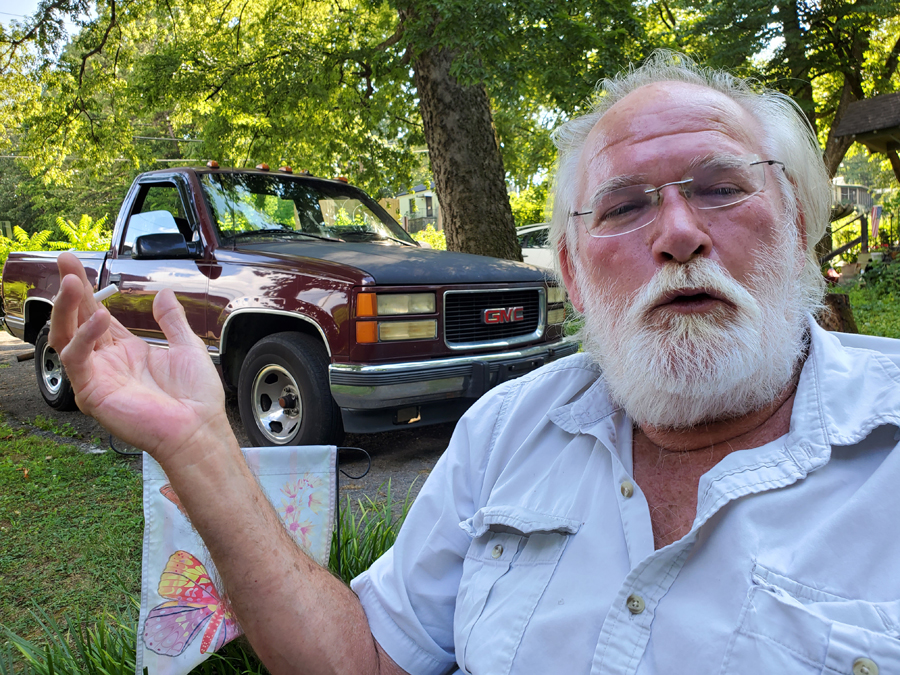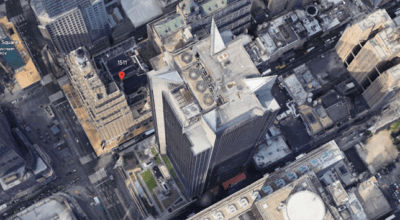
These Chattanooga police officers are getting ready for a parade downtown. They are chief abusers of the limited T.C.A. § Title 55, motor and other vehicles, arresting people without authority, and usually without required warrant. (David Tulis)
CHATTANOOGA, Tenn., Wednesday, Oct. 25, 2023 — I am in court defending the great right of travel, communication and movement and, on top of that, the right to use cars for commercial purpose under state privilege. Paramount in my litigation, starting July 2023, is the right under God and under the constitution to move about from Point A to Point B without the need to ask permission or obtain a license.
Police, sheriff’s departments statewide and state troopers routinely abuse their police powers by oppressing free movement. They impose “traffic stops” on people not involved in “traffic,” defined as commerce or transportation. They do it for revenue purposes. They do it because they’re bored. They prosecute because of the wicked pleasure of hurting people. They arrest and jail or cite because of agency custom and routine, apart from any law.
Among these inalienable rights, as proclaimed in that great document, is the right of men to pursue their happiness, by which is meant the right to pursue any lawful business or vocation, in any manner not inconsistent with the equal rights of others, which may increase their prosperity or develop their faculties, so as to give to them their highest enjoyment.
The common business and callings of life, the ordinary trades and pursuits, which are innocuous in themselves, and have been followed in all communities from time immemorial, must therefore be free in this country to all alike upon the same conditions. **661 The right to pursue them, without let or hinderance, except that which is applied to all persons of the same age, sex, and condition, is a distinguishing privilege of citizens of the United States, and an essential element of that freedom which they claim as their birthright.
It has been well said that ‘the property which every man has in his own labor, as it is the original foundation of all other property, so it is the most sacred and inviolable. The patrimony of the poor man lies in the strength and dexterity of his own hands, and to hinder his employing this strength and dexterity in what manner he thinks proper, without injury to his neighbor, is a plain violation of this most sacred property. It is a manifest encroachment upon the just liberty both of the workman and of those who might be disposed to employ him. As it hinders the one from working at what he thinks proper, so it hinders the others from employing whom they think proper.’ Smith, Wealth Nat. bk. 1, c. 10.
In this country it has seldom been held, and never in so odious a form as is here claimed, that an entire trade and business *758 could be taken from citizens and vested in a single corporation. Such legislation has been regarded everywhere else as inconsistent with civil liberty. That exists only where every individual has the power to pursue his own happiness according to his own views, unrestrained except by equal, just, and impartial laws. The act of Louisiana compelled more than a thousand persons to abandon their regular business, and to surrender it to a corporation to which was given an exclusive right to pursue it for 25 years.
Butchers’ Union Slaughter-House & Live-Stock Landing Co. v. Crescent City Live-Stock Landing & Slaughter-House Co., 111 U.S. 746, 757–58, 4 S. Ct. 652, 660–61, 28 L. Ed. 585 (1884).
The following is from a document sent me by Jon Luman of Red Bank, Tenn. (Emphases by Tulis), Mr. Luman is a vigorous defender of the right of free movement among a free people.
American Jurisprudence, Volume 25, Guardian and Ward to Highways, Copyright 1940, IX. Use of Way, A. In General, 25 AmJur §163 – Generally; Right to Use.
–Streets and highways are established and maintained primarily for purposes of travel and transportation by the public, and uses incidental thereto. Such travel may be for either business or pleasure.

This affidavit is among my evidences and pleadings as I sue to have a minivan registered as a motor vehicle, so I can use the auto for private profit and gain on the people’s roads. Registration makes the car a motor vehicle, a taxable and regulable conveyance used not by right, but by permission and privilege. The court case seeks to overturn fraudulent and oppressive enforcement of the states financial responsibility law at T.C.A. § 55-12-101 et seq. (Photo David Tulis)
Highways may also lawfully be used for purposes other than travel and transportation, which are conducive to the public convenience, tend to make them of greater utility and convenience to those who legally have a right to their use, and are not inconsistent and incompatible with the reasonably free passage over them of whoever has occasion to travel upon them. The extent of the public right depends, in some degree at least, upon the needs of the public.
The use of highways for purposes of travel and transportation is not a mere privilege, but a common and fundamental right, of which the public and individuals cannot rightfully be deprived. The rights of the public to the use of highways cannot be encroached upon by private individuals or corporations. Moreover, streets and highways are for the use of the public in general for passage and traffic without distinction, and all persons have an equal right to use them for purposes of travel by proper means, and with due regard for the corresponding rights of others. The whole community have an equal interest and right to all the privileges and advantages of the highways. The mere fact that the burden of the construction and maintenance of streets and highways and the right to control and manage them rest with the municipal and quasi-municipal corporations in which they are situated does not give to such corporations, or to their inhabitants, any peculiar privileges therein. The right of use is not in the citizens of the corporation alone, even under such circumstances, but remains in the public at large, and the entire public still has an equality of right therein, subject to such limitations as the municipalities are authorized by law to impose. Furthermore, as to the rights of the public, there is no substantial difference between streets in which the legal title to the fee is in private individuals and those in which it is in the public.
The right to make a particular use of a highway, which would otherwise be unlawful or improper, cannot be conferred by the consent or petition of abutting owners or citizens generally. The general rule is that a charge or toll cannot be exacted for the use of a highway for the purpose of travel or transportation in the ordinary modes, in the absence of legislative Authorization.

Jon Luman of Red Bank, Tenn., is a practitioner of the right of free movement by car. He has defeated prosecution by city and county authorities. (Photo David Tulis)
25 American Jurisprudence §165 – Mode and Manner of Use.–The public easement includes every kind of travel and communication for the movement or transportation of persons or property which is reasonable and proper in the use of a public highway, or of a particular portion thereof, with all means of conveyance which can be introduced with a reasonable regard for the safety and convenience of the public, and without inflicting upon the owner of the fee an injury differing in kind from that imposed by use and improvement for ordinary public travel, and embraces all public travel, not prohibited by law or by dedicatory restriction, on foot, in carriages, omnibuses, stages, sleighs, or other vehicles, including motor vehicles, as the wants and habits of the public demand.
The public is not confined to the use of vehicles in use at the time when the streets or highways were established, but may use such other reasonable means or conveyance as may be discovered in the future, provided they do not exclude the proper use of the highway by other modes or kinds of vehicles, or then to destroy it as a means of passage and travel common to all. The use of such new and improved means of locomotion must be deemed to have been contemplated when the highways and streets were laid out or dedicated, whenever it is found that the general benefit requires it, and such new means of locomotion cannot be excluded therefrom or be deemed unlawful merely because their use may tend to the inconvenience or even to the injury of those who continue to use the highways and streets by former methods.
Where sidewalks or footways are provided, they are ordinarily intended for the use of pedestrians, to the exclusion of animal and vehicular traffic, except in the case of certain small vehicles. The rights of the users by any proper mode or means are equal, neither enjoying any superior rights over another, except under regulations governing the movement of traffic, and if the use of one mode of travel or means of conveyance results in injury to the user of another, the latter’s right of action will depend on the question of negligence.
Any person has a right to transport over the highway elephants and animals, or machinery, or loads of goods, which, from their height or appearance, or the noise made in transport, are liable to frighten horses or other animals. But while this right is undoubted, it must be so exercised as not to endanger the lives or property of others who have equal rights upon the highway, and as in other cases of the use of a dangerous article, that required degree of care increases with the danger to be apprehended from the use of it and from exposure to it. While highways are constructed and intended for ordinary use, in an ordinary manner, necessity may justify the use of a street for the purpose of transporting things in an unusual manner, or of transporting such things as necessarily obstruct the street for a time, and such uses are not necessarily illegal. Articles of this character may not, however, be unnecessarily permitted to remain stationary in the street, in an improper and dangerous position, or for a longer time than is reasonably necessary for the mere purpose of transportation. The allocation of portions of the way to particular uses is discussed in a subsequent section.”

